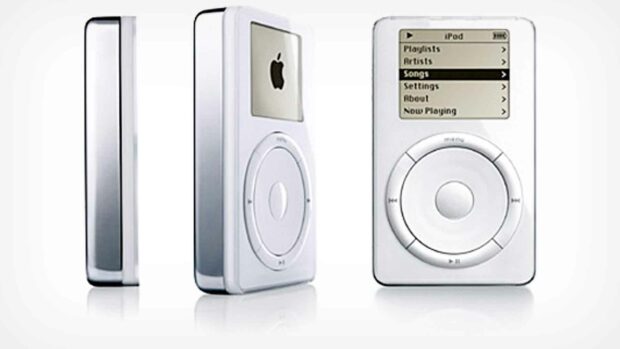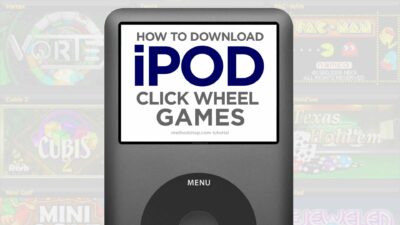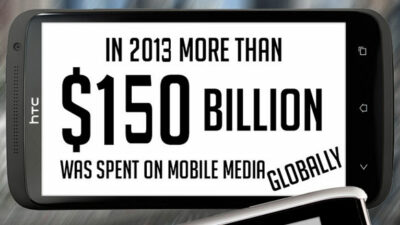All good things must come to an end. That’s especially true for tech products. From your old smartphone to your first Bluetooth headset, what’s popular today will soon be relegated to the gadget graveyard tomorrow. But what tech products died 2022? If you’re a tech fan, you may have already said your goodbyes – but if not, it’s time to take a look back and see what we lost.
Will you miss any of this old tech? It’s time to find out! Let’s review some of the most popular tech that died in 2022.
BlackBerry

In 1999, the BlackBerry phone burst onto the scene as a revolutionary paging device. Then in 2002, BlackBerry released the BlackBerry 5810, the first smartphone with a keyboard. For the next decade, they continued to revolutionize the way we communicate and wooed the public with their small but functional keyboard.
But, as the saying goes, all good things must come to an end. The debut of the iPhone in 2007 immediately introduced a serious challenger to the BlackBerry. After Google added the Android to the market, the BlackBerry couldn’t compete anymore. Thanks to its security features, the BlackBerry got a brief surge in users after the North Korea Sony hack. But eventually the popularity of the BlackBerry quickly began to wane. In 2022, the beloved smartphone finally retired.
Today, Android and iOS devices dominate the smartphone market. But the BlackBerry will always have a special place in the hearts of tech fans in the workforce in the early 2000s.
Blackberry, you had a good run. RIP 2002-2022. #BlackberryForever #RIP #BlackBerryPhone #TechThatDied Share on XiPod

Sure, there were other MP3 players before and after the iPod. Remember the Diamond Rio and Zune? But other MP3 players were bulky, ugly, and had limited storage capacity. Steve Jobs, however, saw the potential in this market and seized the opportunity. With clever marketing (who can forget Feist’s iconic “1234” iPod commercial?), sleek design, and plenty of storage space, Apple revolutionized the way we listen to music.
Over the years, the iPod evolved to have bigger hard drives, colors, a special U2 version, and even a touch screen with the iPod Touch. But after the iPhone’s debut in 2007, the iPod’s days were numbered. Consumers no longer needed the iPod to listen to their music. They could just use their iPhone for everything.
But the success of the iPod leaves a strong legacy behind. It had a major impact on how audio content is consumed and led to the rise of music streaming, podcasting, and the creation of platforms like Apple Music, Pandora, and Spotify.
Unfortunately, the glorious run of the iPod has finally come to an end. RIP iPod 2001-2022.
RIP iPod, you'll always be remembered for bringing us the joy of music on the go. #iPod2022 #iPodLegacy #iPod #TechThatDied #RIP Share on XMicrosoft Internet Explorer

After a quarter of a century of being the go-to browser for millions of users, Internet Explorer (IE) was officially retired and removed from Microsoft support on June 15, 2022. Although it was a beloved browser, it was time for something new and improved. Enter Microsoft Edge, the new and improved replacement browser that made its debut in 2015.
Microsoft Edge was faster, more secure, and provided better navigation than IE, so it only made sense for Microsoft to offer one browser instead of two. But if you really miss Internet Explorer, you can still use Internet Explorer within the Edge browser.
Internet Explorer is shutting down, but don't worry - you can still relive the good old days with the IE option in the Edge browser! #IEFarewell #ByeByeIE #InternetExplorer Share on XSpotify Car Thing
The Spotify Car Thing was a touchscreen panel for your car that made navigating the Spotify app easier. The Car Thing had a large scroll knob that allowed users to quickly scroll through their music collection.
However, the Spotify’s Car Thing didn’t quite hit the mark with consumers. At $80, it wasn’t worth the expense. And as phone screens got bigger, the Spotify Car Thing wasn’t really necessary.
Meta Portal
When the Facebook Portal was first released in 2018, it was met with much fanfare and anticipation. Rebranded as the Meta Portal, it promised to be an exciting product with a lot of potential. Similar to an Amazon Echo Show, it featured video calling capabilities and a camera that could follow your movements within certain parameters. Unfortunately, it failed to capture the hearts of consumers and Meta eventually decided to pull the plug on the consumer versions of the Meta Portal.
But all is not lost! Meta is now focusing on business applications and has plans to release two smartwatch products in the near future. So, tech fans, stay tuned! Who knows what exciting products Meta will come up with next?
Google Stadia
Google Stadia was launched with lots of fanfare in November 2019, promising cloud gaming services for compatible devices.
Unfortunately, the service received mixed reviews from users, and failed to secure a dedicated fan base. As a result, Google was forced to pull the plug on what could have been a great online gaming service.
The competition was fierce, with Sony Playstation Plus, Nvidia GeForce Now, Amazon Luna, and Microsoft’s Xbox cloud gaming platform all vying for the same market. To make matters worse, Netflix is also entering the online gaming space, leaving little room for Google Stadia to carve out its own niche.
Amazon Glow
It’s the end of the line for Amazon Glow. The innovative video-calling device, which was introduced in 2021, was designed to provide an interactive way for kids and families to connect. Rather than just talking, Amazon Glow used video projection to allow both the caller and receiver to engage in activities such as games, art, puzzles, and more.
It was a perfect idea for kids stuck at home during the COVID-19 pandemic. But as kids returned to school, the opportunity window for the Amazon Glow closed before it could take off.
FTX

Cryptocurrency exchange FTX had big plans to take crypto trading mainstream with sponsorships and deals with sports stars like Tom Brady and Steph Curry. But, as the saying goes, “all that glitters is not gold”.
Reports say at least $1 billion of customer money has “apparently vanished” and the U.S. Department of Justice is investigating FTX for fraud.
The company’s calamitous death has wiped out any crypto goodwill it had built up in its short life. So much for being a trustworthy and user-friendly trading platform.
The fall of FTX and its former CEO Sam Bankman-Fried was a major blow to cryptocurrency, which already had a disastrous year in 2022.
CNN+
CNN has had a bit of a rocky ride as the world’s leading cable news network. As the way we consume news and information changed, CNN had to adapt, but not all of those changes have been financially beneficial. CNN has become a highly politicized news outlet with multiple owners and the departure of many award-winning journalists.
In an attempt to innovate in the streaming space, CNN launched a paid subscription service, CNN+, that offered both news and expanded lifestyle content not available on the cable side. Unfortunately, the gamble didn’t pay off. After only a month, CNN+ had only attracted 150,000 subscribers, making it a potential big-money loser. So, the executives at Warner Bros. quickly said “bye-bye” to CNN+ before subscribers even got their second bill. And CNN+ became another piece of technology that died in 2022.
Tech That Died In 2022: CNN+ is no more - guess we'll have to find another way to get our news fix! #ByeByeCNNPlus #TVNews #CNNplus #techthatdied Share on XEvoca TV
Evoca TV was a short-lived video service that promised to revolutionize the way we watch TV. Developed by Edge Networks, Evoca was designed to work like cable TV but provided via over-the-air broadcast using the ATSC 3.0/NextGen TV platform. It promised to offer 80 news, sports, local, and live TV channels in HD and 4K for about $50 per month, making it a great option for those who don’t have reliable bandwidth for streaming.
Launched in 2020, Evoca TV was available in Arizona, Colorado, Idaho, Oregon, and Michigan. They started off combining local broadcast stations, a few inexpensive cable channels, and regional sports networks in service bundles priced at around $25 a month.
EVOCA was an idea ahead of its time, but unfortunately, it didn’t have enough financial backing to keep up with the times. On December 31, 2022, it sadly had to call it quits.
Remembering The Tech That Died In 2022
What tech will you miss the most from this list? For me personally, it’s the iPod. I loved all of my iPods and will always have fond memories of how they made my commutes in and out of New York City more relaxing.
If you could bring back any of the technology that dies in 2022, what product or service would it be?
I’m a dog owner that loves poetry, vampires, mountain biking, and cosplay. I’m open to ideas and still trying to figure my SFO life out one blog post at a time. LF ISO SWF GSOH SI DDF.
























 25 Inspirational Dr. Martin Luther King Jr. Quotes
25 Inspirational Dr. Martin Luther King Jr. Quotes
Leave a Reply
You must be logged in to post a comment.